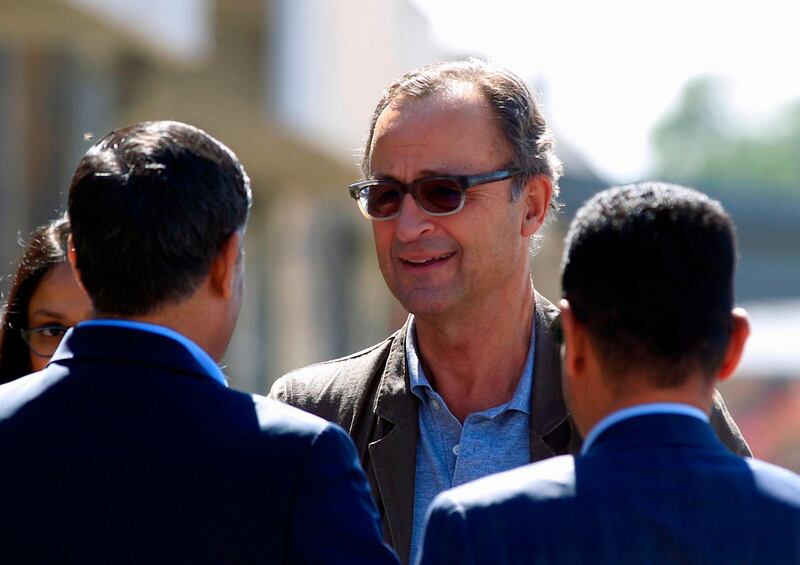A UN monitoring team will hold its first formal meeting with government and rebel forces in Hodeidah on Wednesday as it begins overseeing a truce in the port city considered crucial to ending Yemen's civil war.
Led by Patrick Cammaert, a retired Dutch general, the team arrived in Hodeidah on Sunday night to start monitoring the truce and the withdrawal of forces belonging to both the Iran-backed Houthi rebels and Yemen's internationally recognised government.
The monitors arrived in Aden, the government's temporary base, on Saturday and visited the rebel-held capital Sanaa before travelling to Hodeidah.
Mr Cammaert will chair the Redeployment Co-ordination Committee (RCC) made up of UN monitors as well as government and rebel representatives.
On their first day in the city the UN team was to visit Hodeidah's three ports, meet Houthi representatives and prepare the logistics for the first meeting of the RCC, a source in Yemen's government told The National on Monday.
The team will also come up with an estimate for the number of monitors required.
Government officials said there are concerns for the monitors' security given the presence of rebels in the city, which is under Houthi control.
"Houthi militias will try to manipulate and trick the UN team by disguising themselves as civilians, but the three Yemeni governmental officials that are on the RCC are aware of what the rebels will try to do," the source said.
The UN team arrived in Hodeidah hours after Houthi attacks on residential areas in Al Saleh city to the west. Col Turki Al Malki, the spokesman for the Arab Coalition supporting the government, said on Monday that the rebels violated the truce 138 times since it came into effect on December 18.
Col Al Malki said the rebels prevented ships carrying fuel and essential goods from entering the ports.
The truce was brokered during UN-led peace talks in Sweden this month and lays out a step-by-step process to stop the fighting in Hodeidah and transfer control of its ports from the rebels to local administrators and security personnel, under UN supervision.
As the entry point for most of Yemen's food and humanitarian aid shipments, the city became the focal point of the four-year war. The UN's efforts are aimed at keeping this lifeline open and preventing a deterioration in what it says is already the world's worst humanitarian crisis, with a third of the population on the brink of starvation.
_______________
Read more:
Explosion at Aden police checkpoint injures bystander
Red Cross: Yemen prisoner swap could involve 16,000 detainees
War-ridden Yemen's other frontline - the central bank
_______________
The government source said one of the top issues on the RCC agenda will be locating mines planted by the rebels. Mr Cammaert's team was given maps by the government showing estimates of where mines have been laid in the city and ports.
The UN monitoring team was given an initial period of 30 days to carry out the ceasefire in Hodeidah and surrounding areas, with any breaches to be reported by Secretary General Antonio Guterres to the Security Council.
Their mandate came from a resolution adopted unanimously by the Security Council on Friday, a week after Martin Griffiths, the UN special envoy to Yemen, said there was an urgent need for the truce to be monitored.
It is supported by the UAE and Saudi Arabia, the main powers in the Arab Coalition that backs Yemen's government.
Mr Guterres will report weekly to the Security Council on the ceasefire and the situation in Yemen.
The deal reached in Sweden is meant to pave the way for a wider ceasefire in the impoverished country and a second round of talks in January on a framework for political negotiations.






